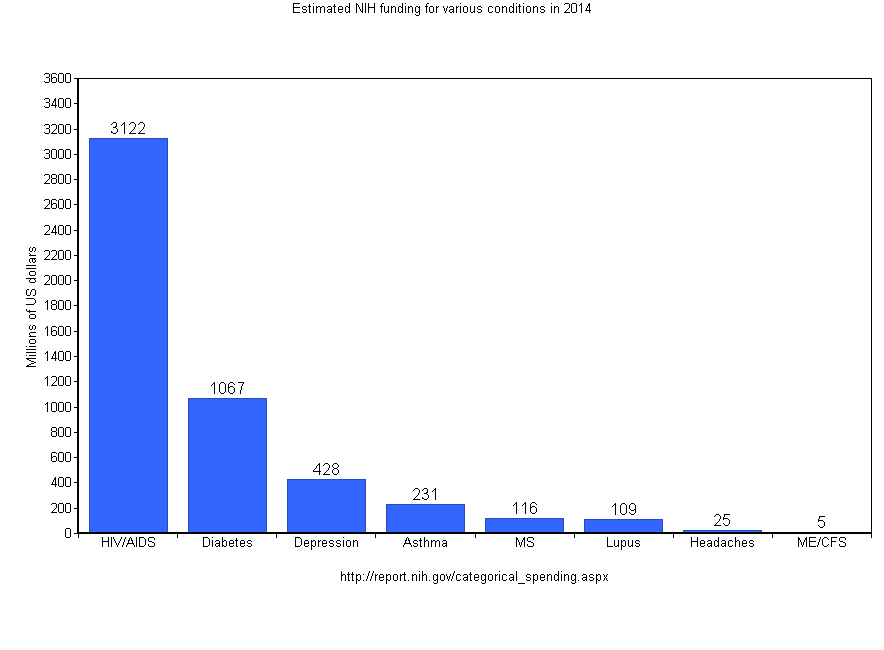Hi Research 1st. Sorry to hear about your terrible experience with the NHS. I used the phrase "a strong sense that the system has abandoned them" as a reflection of the system as a whole on the patient population in addition to whatever personal experiences individuals have endured, but you are certainly correct to point out that the system *has* in fact let down those in most need of assistance (including yourself), sometimes at the horrific expense of patient lives, either through disgraceful passive neglect or active abuse and forced quackery methods.
Patients who have endured or been threatened with involuntary measures have not only been abused by individuals, but the overall system as a collective has abandoned the ME patient population as a whole, regardless of individual interaction with health care services. As you mention, ME is not CF, there is a lack of diagnostic tools and effective treatments, with a codified withdrawal of further testing and medical treatment, and the herding of ME patients into CBT/GET.
I'm sure there will be some people who view the fatigue clinics as a sign that the patient population is not neglected. AFAIK, only a fraction of the patient population gets access to these places, and I have read very mixed reports from people who have attended. Components of what is offered may be helpful to a few patients: at best, the staff ignore the hype around CBT/GET and end up offering counselling and pacing in practice, but it's all down hill from there. I would rather get nothing.
None of this is adequate "treatment" for ME or even for "chronic fatigue". PACE showed that only a small fraction of Oxford criteria patients are modestly benefited by CBT/GET. Even those benefits have not been proven superior to placebo, and with objective outcomes either showing no clinically significant benefit or no benefit whatsoever. Not to mention the 80% or so candidates who were excluded from participating in the trial despite a CFS diagnosis of some sort. We don't know how many (or if any at all) "recovered", as they greatly weakened the criteria (after seeing other outcomes) and will not release the results as laid out in the protocol. The cognitive behavioural model of CFS and similar rationales have failed to deliver and led us up a blind alley for decades while biomedical research was largely ignored or neglected despite promising leads.
Jane Colby has highlighted the false allegations of child abuse in cases of childhood ME. The Tymes Trust have advised over 100 families facing suspicion/investigation, and none of these families have been found to be at fault. The factors blamed for this state of affairs were: 1) The misperception that ME is not a physical disease, but a mental health disorder. 2) The misperception that CBT/GET is always expected either to cure, or substantially improve the condition, or certainly will do no harm. 3) The misperception that the illness is neither long lasting nor severe.
ATOS (non ME specific) blamed its scandalous behaviour on rogue agents, but it turned out that the poor practices were so widespread that about 40% (IIRC) of the staff or cases were implicated. Similarly, I wonder how understated the abuse of ME patients is, the most well known cases are merely the tip of the iceberg. We rarely hear about this abuse, instead the media are more interested beating the drum about the alleged harassment of researchers with abusive emails and "damaging" freedom of information requests, while patients are left untreated, suffering, or dying.
The research progress has been slow and twisted so I don't really have faith about the short to medium term. There may be a few occasional good signs but too few and slow. I think you mentioned on another thread that enough research has already been done to guide the way. We also need large replication studies on appropriate cohorts for this research to be taken seriously and widely adopted. It is realities such as remaining at the bottom of the research funding priority in all countries which put things into perspective about how the patient population is truly regarded (on top of the usual social disparagement and medical service neglect). Particularly considering how the loose change given to research is often wasted on frivolous, poor quality, or non-representative research. So in addition to any personal experiences of being left to rot, the signs point towards the problems being widespread and nothing is changing fast. In the current climate it appears that the best most patients can hope for from the system in the short term is being left alone on uncontested income support.
I started writing about my (typical but not as extreme as some others) experiences with illness and period of depression, but this post is already too big and taking too long, so maybe later. I avoid doctors as much as possible, especially when I do not know of any effective treatment or any symptom management which I can tolerate. I've lost too much already due to poor advice or treatment side effects so I am reluctant. I just try to make do with what I have left and hope that one day in the future things will improve. Like you, I don't know how completely bedridden patients cope either. The exhaustion must be bad enough, but so many other symptoms become worse in ways which make "fatigue" the least concern. Seeing graphs such as the following certainly increases the realisation of abandonment:

